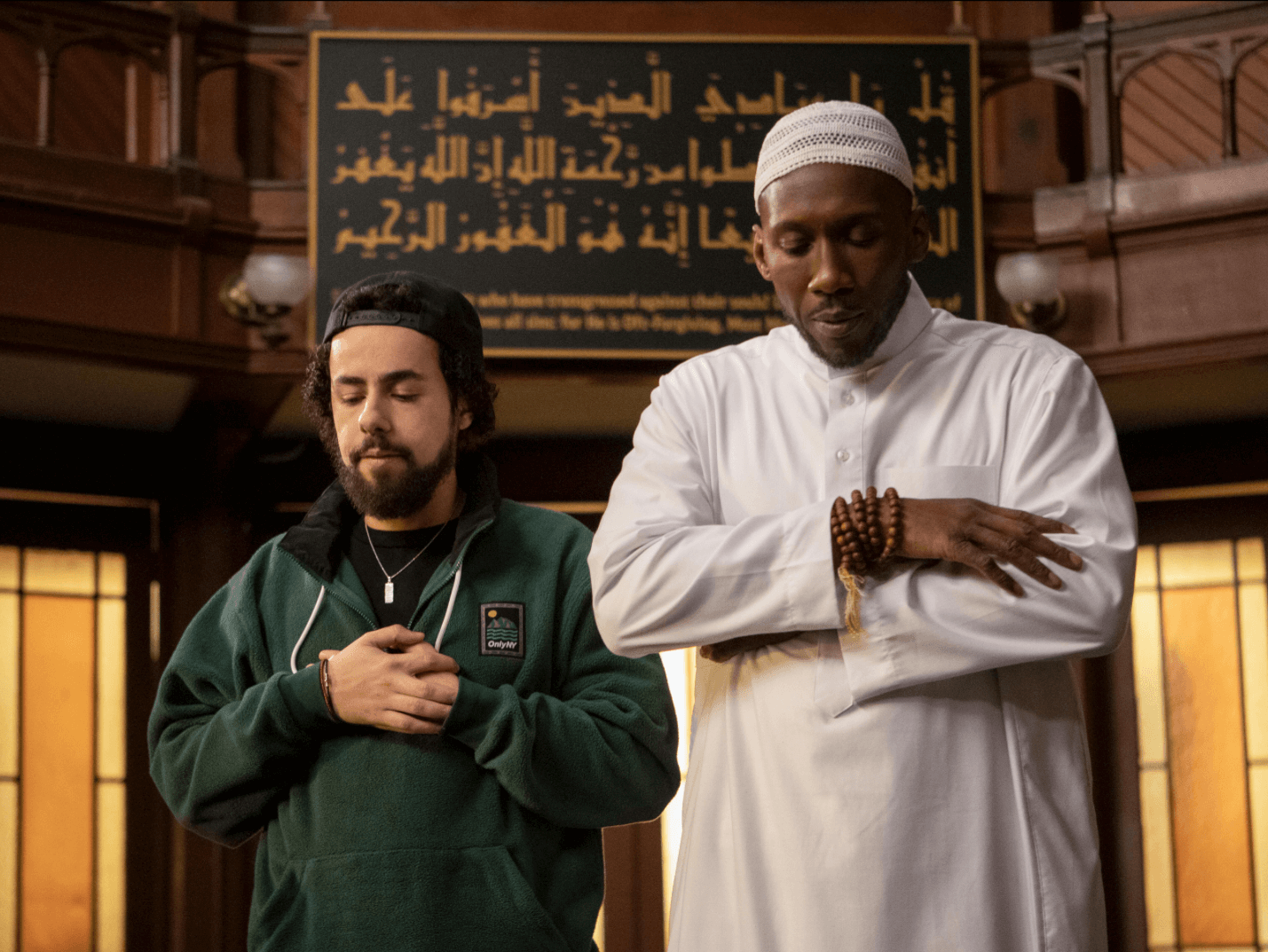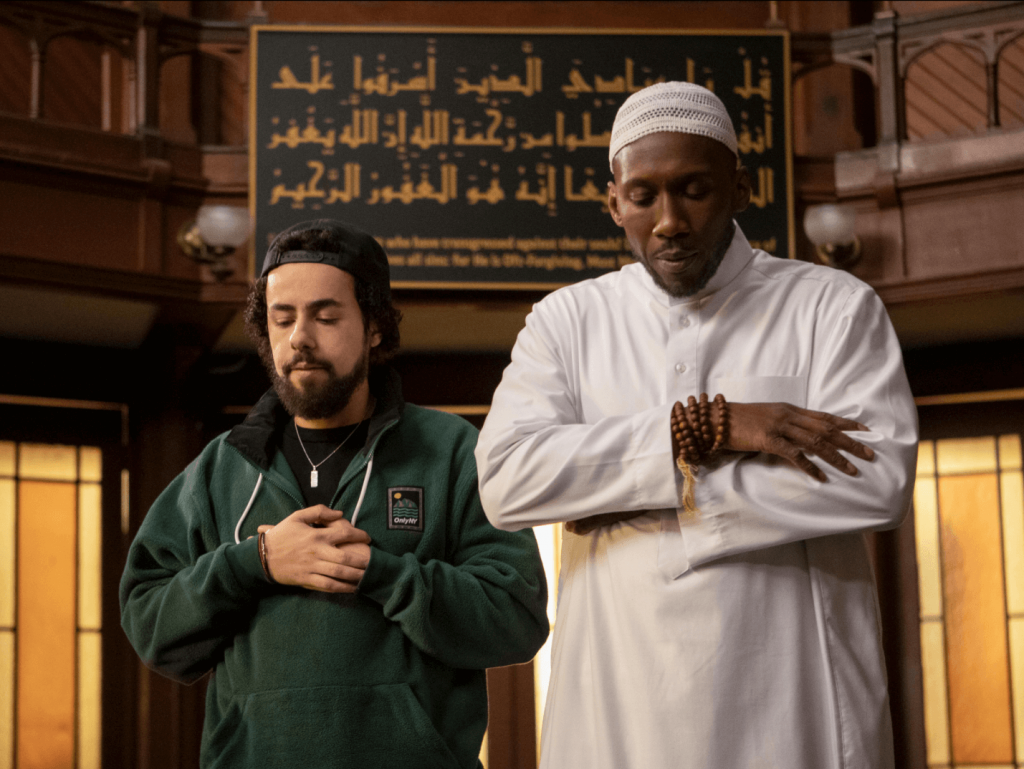
“There’s something about destiny that’s always felt hopeless. It’s like, no matter what I do, I’m just going to be where it was written for me to be … It’s already been chosen, but we still have choice. It’s a concept beyond our understanding. How can you choose what’s already been chosen? Only God could know. Are we ever wrong or right?”
The italicized quote doesn’t come from a Christian pastor wrestling with predestination or a sermon about God and free will. It is an excerpt from the opening monologue of Ramy’s third season. Ramy is a Hulu series wrestling with deep questions of the Islamic faith. The show follows Ramy Hassan (Ramy Youssef), a 20-something son of Egyptian immigrants, as he navigates the tensions of dīn and dunyā — religion and the world. Transcending the clichés of blind religiosity, terrorist sympathies, and the social ignorance stereotypically associated with Arab and Muslim American life, Ramy shows us the messy work of finding our own way in the world between halal (permissible) and haram (not permissible).
In the opening episode of the show’s third season, Ramy wrestles with the Arabic phrase inshallah. “I always thought it meant, ‘If God wills it to be,’” Ramy reflects. “But as I got older, I realized the translation is a little different. It’s more like, ‘If God willed it to be.’ Past tense, because it’s already been chosen” (my emphasis).
This opening monologue made concrete what I had already felt through the first two seasons: Ramy has much to teach Christians about faith. If we replace inshallah with “predestination,” the spiritual crises articulated by Ramy can just as easily apply to the Christian tradition.
I should say two things here. First, I want to acknowledge that Ramy is a uniquely distinct show couched in the experiences of Muslims and Arabs in the U.S. I am interested in this show, as an Indian Christian, not because I want to put a Christian spin on the show but because I think Christians in the U.S. have much to learn from other faith traditions. Secondly, spoilers are below.
At the end of each episode, viewers are often left shaking their heads in frustration. It is hard to root for Ramy. According to Youssef, this is intentional. “I’ve always been really turned off by a show where you’re kind of just rooting for someone regardless of the stupid things that they do, or regardless of how their ego is clearly driving what they’re doing,” Youssef explains.
In the first two seasons, we see Ramy practice what he jokingly calls an “Allah carte faith”: He dutifully prays and even avoids drinking, but he also habitually watches pornography and has no problem sleeping around with many women. His friends — Ahmed, Steve, and Mo — all point out these contradictions in his life and attempt to show him that these choices are often the source of his troubles. Even so, on his quest to become a good person, Ramy seems unwilling to divert from these patterns and, as demonstrated by his monologue about inshallah, Ramy feels predestined to be in a constant state of spiritual crisis.
I have spent seasons of life asking the same questions as Ramy. Looking around in those moments, I witnessed peers use dogmatic interpretations of election and predestination to rid themselves of responsibility — cheating on their partner, stealing intellectual property, and manipulating others for personal gain, all while being self-assured in their election and God’s divine providence.
Historically, the doctrine of predestination has been wielded as a weapon against marginalized and oppressed peoples. Ridding affluent, white Christians of meaningful responsibility, sermons like John Winthrop’s 1630 “A Model for Christian Charity” recognized that God has divinely ranked society into two groups — the wealthy and the poor. Each group, Winthrop argues, should “live comfortably by their own means.”
A running theme throughout Ramy is how our actions affect those around us. The clearest example of this is in the second season, which is set around his engagement to a Muslim woman named Zainab (played by MaameYaa Boafo) and his relationship with her father, Sheikh Ali Malik (played by Mahershala Ali). On his wedding night, Ramy admits to his bride that the night before he slept with his first cousin. One season later, Ramy is forced to face the consequences of his actions, which include paying a mehr — a large sum of money incurred by the divorce — and being a father to a child who Zainab has hidden from him. Sheikh Ali Malik’s final words to Ramy painfully reverberate through the season: “F*** you, Ramy. … You hurt people!” Ramy’s questions of faith are genuine, but it seems he is dedicated to escaping the consequences of his actions.
In the Christian faith, sin is a corporate reality. That is, all sin exists in relation to something external to us. Whether that relationship is with God, a neighbor, or even the land, we cannot escape the consequences that our choices have on the world around us. As Ramy shows us, even if we believe we are predestined to endure spiritual crises, this does not negate the impact of our actions on others. The consequences of sin reach far beyond us.
What we see throughout the Hebrew Bible and New Testament is God’s affirmation of those who took personal accountability for the safety and well-being of their neighbors (Deuteronomy 15:11; Joshua 6; 1 Samuel 2; Matthew 8:5-13; Luke 10:25-37; James 2:5). Conversely, God judges those who choose their own self-interest over the good of the community (2 Samuel 24; Acts 5:1-11; James 2:14-17). When God chooses a person or a people, it does not inhibit loving kindness; election catalyzes it.
Near the end of the opening “inshallah” monologue, Ramy makes a second theological reflection: “There’s a passage in the Quran that gives me faith. Allah says, ‘We created you in pairs.’ And there’s something so beautiful about that. It’s like, even if our fate’s already been written, all of our blessings, all of our downfalls, it was written for us to be together in a pair. We are not meant to be alone.”
In this conclusion, I hear Ramy’s recognition that 1) the world is broken and 2) we were not made to navigate this brokenness alone. Throughout the show, even when Ramy doesn’t deserve any of the grace he receives, his friends and family (many of whom are Muslim) remain steadfast — offering the few resources at their disposal. This, too, is a core teaching of Islam. As one well-known hadith states: “The Prophet Muhammad is reported to have said: ‘Three things are the best acts; first, to treat people with equity and justice; second to assist your co-religionist brethren as fellows and aid them financially; and third, to remember God under all conditions.’”
In my own life, I have been enormously blessed by people of deep faith living out this hadith in our broken world. It was my Muslim neighbors who stood in solidarity at Stop AAPI-Hate rallies across the country and welcomed me in their places of worship with warm food and enlightening conversation. It is Muslim thinkers and builders like Eboo Patel, Asma T. Uddin, Wajahat Ali, and Shadi Hamid who’ve taught me what it means to truly live in beloved community. It was Muslim friends who consistently created space for rich conversation about the future of our common life. Indeed, this is a value shared between Christians and Muslims: We believe God has made us to be communities defined by love. Through trial and struggle, it is our family, friends, and neighbors who come around us and speak goodness and truth into our lives.
We have yet to see what tragedy might befall Ramy in the fourth season. However, it is not too late for us to capture the lessons Ramy teaches us and put them into action, inshallah.

